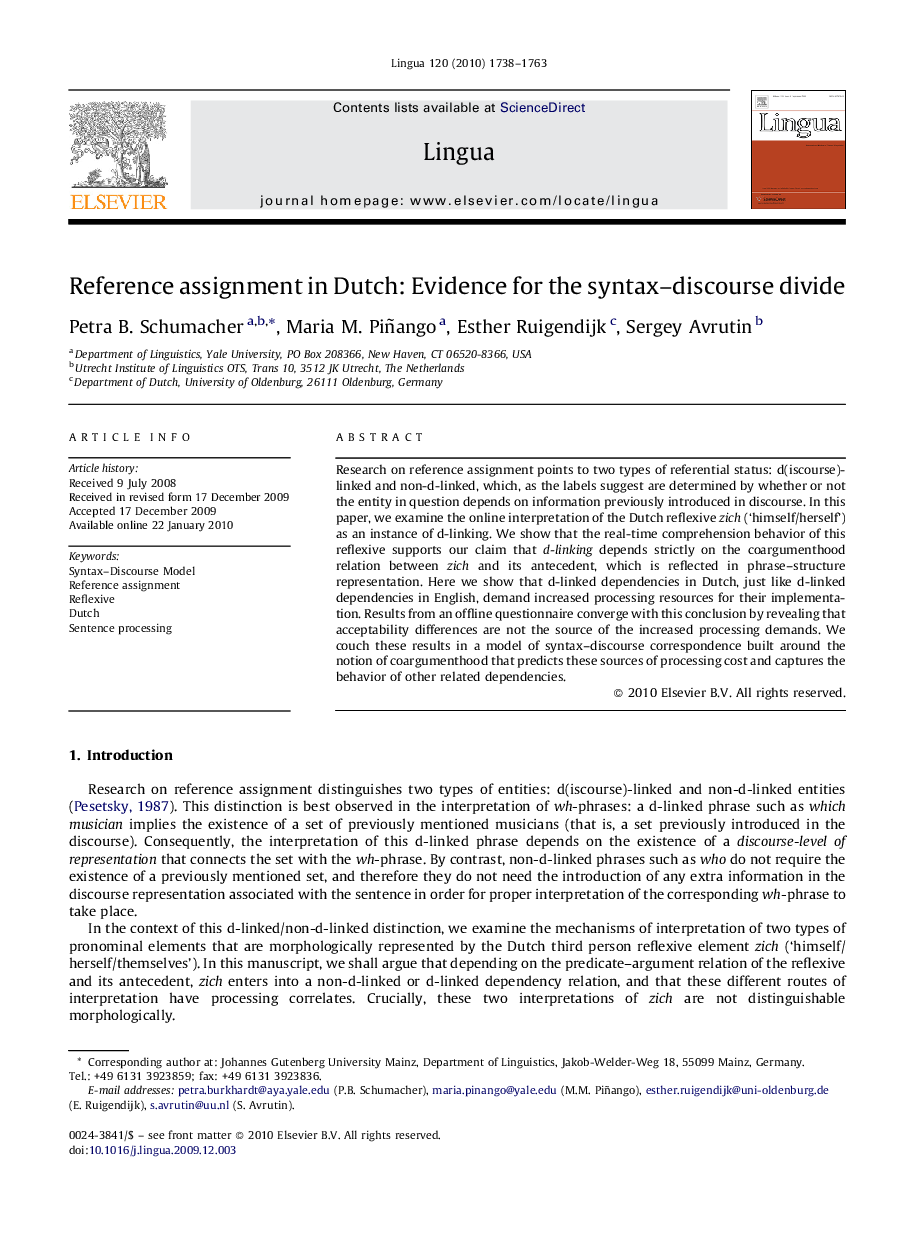| Article ID | Journal | Published Year | Pages | File Type |
|---|---|---|---|---|
| 935651 | Lingua | 2010 | 26 Pages |
Research on reference assignment points to two types of referential status: d(iscourse)-linked and non-d-linked, which, as the labels suggest are determined by whether or not the entity in question depends on information previously introduced in discourse. In this paper, we examine the online interpretation of the Dutch reflexive zich (‘himself/herself’) as an instance of d-linking. We show that the real-time comprehension behavior of this reflexive supports our claim that d-linking depends strictly on the coargumenthood relation between zich and its antecedent, which is reflected in phrase–structure representation. Here we show that d-linked dependencies in Dutch, just like d-linked dependencies in English, demand increased processing resources for their implementation. Results from an offline questionnaire converge with this conclusion by revealing that acceptability differences are not the source of the increased processing demands. We couch these results in a model of syntax–discourse correspondence built around the notion of coargumenthood that predicts these sources of processing cost and captures the behavior of other related dependencies.
